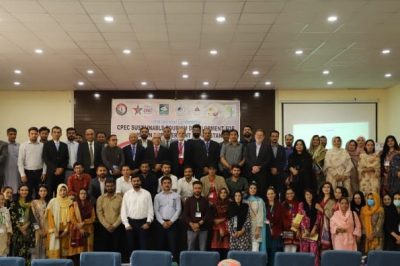My journey to the International Conference on China-Pakistan Economic Corridor (CPEC) and Sustainable Tourism Development for Women Empowerment in Pakistan in Hunza to present a research paper and the picturesque province of Gilgit-Baltistan made an unforgettable impression on me. It was a journey of empowerment, enlightenment, and exploration.
When I arrived in Hunza, I was stunned by the region’s spectacular natural splendor. Hunza, nestled among towering mountains and surrounded by beautiful green valleys, was a perfect environment for a conference focused on maximizing sustainable tourism’s potential.
This conference, hosted by Karakoram International University in Gilgit and Fatima Jinnah Women’s University in Rawalpindi in collaboration with the Higher Education Commission of Pakistan, promised to be revolutionary. The conference, which was meticulously prepared, was a melting pot of academia, government officials, researchers, and motivated individuals willing to contribute to Pakistan’s sustainable development.
The conference coordinators, including Dr. Khalid Mehmood Alam (KIU), Dr. Sajjad Haider (KIU), Dr. Sohail Rizwan (FJWU), Dr. Mukhtiar Bano (FJWU), Dr. Aamir Arsalan (FJWU), Dr. Adeela Rehman, (FJWU), Dr. Sana Zulfiqar (FJWU), and Dr. Nazia Zaman (FJWU) had crafted a diverse range of sessions that explored the multifaceted aspects of tourism and women’s empowerment.
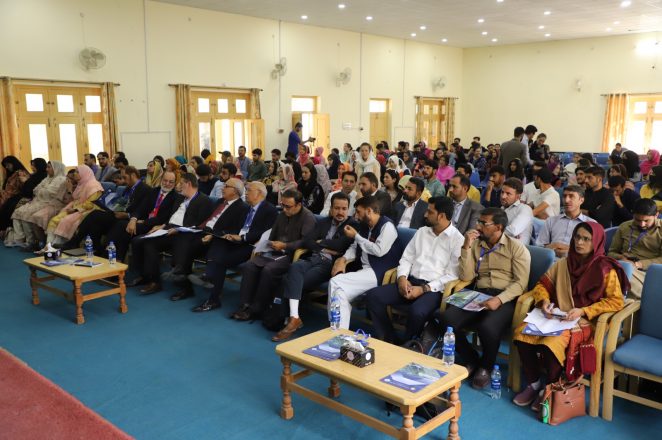
Prof. Dr. Engr. Attaullah Shah, Vice Chancellor of Karakoram International University, delivered the conference’s keynote speech, widely regarded as one of the event’s defining moments. He stated that Pakistan, like many other countries, is at a critical point in its history. New opportunities for economic development and progress have been created by the China-Pakistan Economic Corridor (CPEC). We must use this opportunity to spread the benefits widely throughout our society, especially to our women.
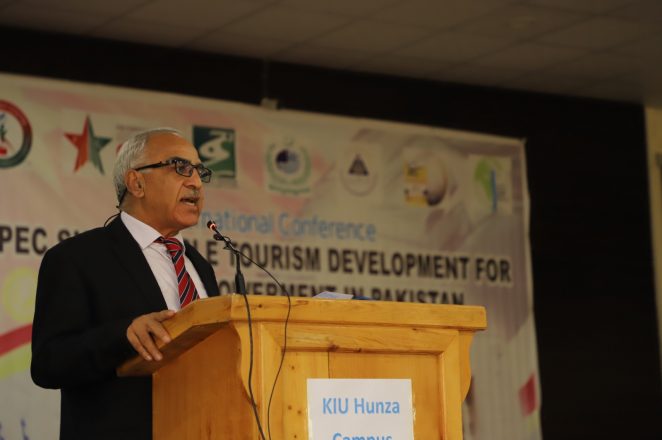
Furthermore, he noted that the conference’s focus on sustainable tourism development highlights the enormous potential of the tourist industry for empowering women. Increasing possibilities for women to work in the tourism industry is crucial to ensuring the continued success of the industry and the advancement of women in general. The conference’s themes, which covered everything from the role of academia in assisting enterprises to digital connectivity, sustainable social tourism infrastructure, and poverty alleviation through women’s participation, were chosen to inspire creative thinking and collaborations that will open the door to a better future.
Dr. Faqeer Muhammad, Director of China Study Centre KIU, underlined that women’s empowerment is more than just a phrase; it is the foundation of every progressive and egalitarian society. It exemplifies social justice, economic development, and human rights. It’s the pathway to helping 50 percent of the population reach their full potential. The conference’s subject, “Sustainable Tourism Development,” speaks to the heart of our vision. Tourism has the unique ability to offer economic possibilities, create jobs, and foster cultural interchange. To achieve this sector’s full potential, we must ensure that women are active participants and beneficiaries.
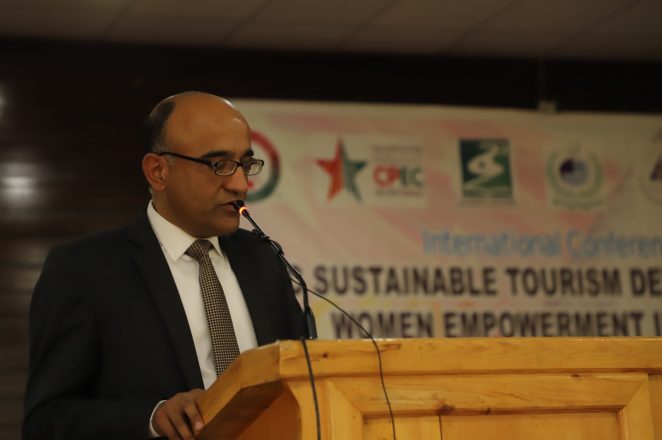
Dr. Sajjad Haider, Director of the International Office KIU, emphasized that in the ever-changing global development environment, one reality remains constant: women’s empowerment is synonymous with societal empowerment. It is impossible to overestimate the contribution that women have made to the advancement of our country. When women are given the resources, opportunities, and support they require, they act as innovators and promote social harmony, cultural enrichment, and economic progress. We came together with a shared desire to maximize the potential of our women as we looked at the intersection of sustainable tourism, CPEC, and women’s empowerment. With its numerous options, the tourist sector promises to highlight Pakistan’s beauty and tradition and create doors for women to engage in its growth actively.
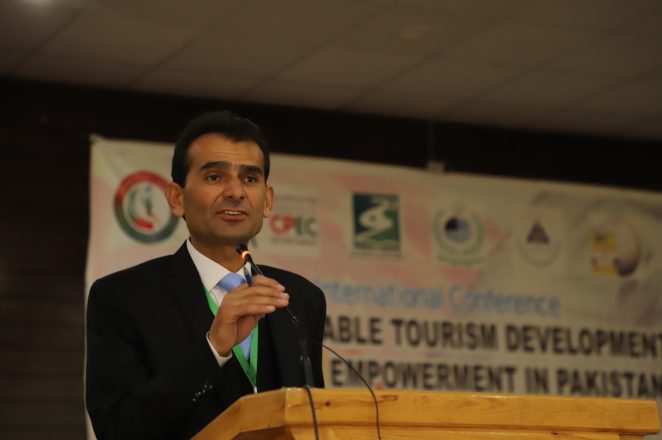
Dr. Syed Aftab Alam, Conference Coordinator and Focal Person (HEC), remarked that we gather to discuss the nexus of CPEC, sustainable tourism, and women’s empowerment; drawing attention to academics’ critical role in these sectors is essential. Our educational institutions, including our universities, are not just places to learn but also sites for innovation, research, and development.
Moreover, he stated that The conference’s theme stresses the enormous potential for cooperation between Pakistan’s academic community and the country’s tourism sector. Our educational institutions can create and build curricula that are rigorous academically and in line with the real-world demands of the travel and tourism industry. In this way, we can equip our students, especially women, with the tools they need to succeed in this rapidly evolving field.
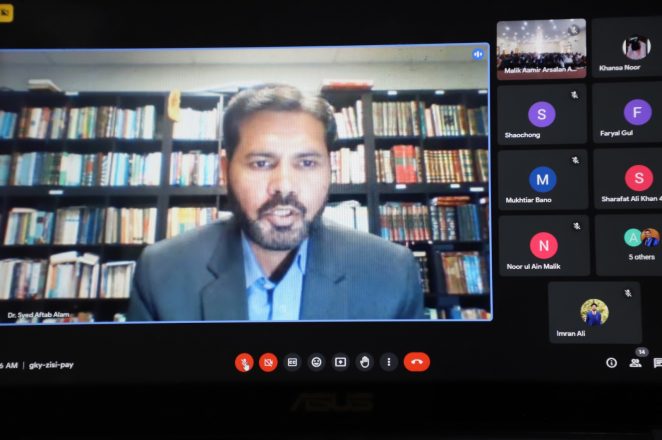
Furthermore, he noted that our universities serve as breeding grounds for new ideas and research. They can produce insightful ideas and workable solutions that can support the growth of women’s emancipation and sustainable tourism. Our responsibility is to ensure that these insights are shared with governments, businesses, and the larger community.
Also Read: Potential of Pakistan’s National Agricultural Research Centers
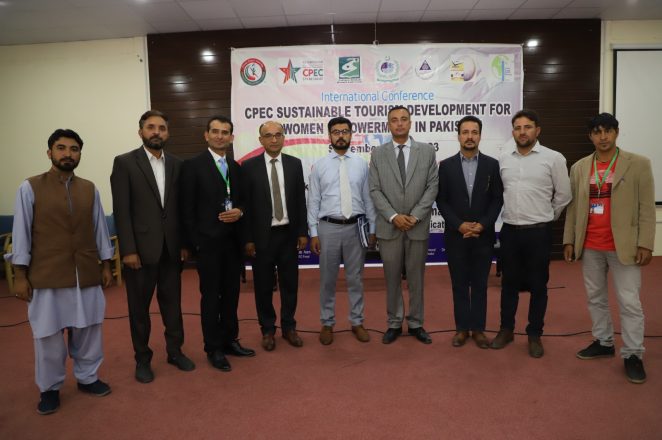
According to Dr. Saima Hamid, Vice-Chancellor of Fatima Jinnah Women’s University, education is the most powerful tool for social development, and our universities are the crucibles where this transformation occurs. At universities, we are aware of our obligation to instill in our students that they can break down barriers, question conventions, and build a future where gender equality is the rule rather than the exception.
This conference’s theme is highly relevant to what we do. When promoted by academia, sustainable tourism could serve as a tool for empowerment. It is about giving our students the expertise, abilities, and global perspectives they need to succeed in a dynamic and ever-changing profession.
As we assemble here, let us acknowledge the role of women in academia. As academics, researchers, and educators, women have contributed much to knowledge and society. We must continue to foster an environment that encourages and supports women’s growth and leadership in academics, providing an excellent example for the rest of the community.
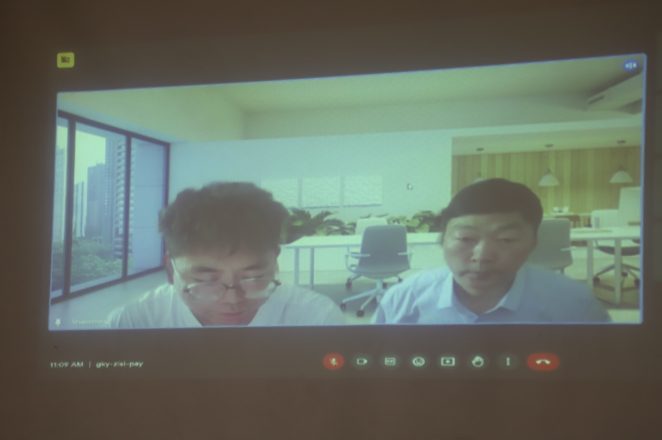
Dr. Rehmat Karim, Director of the KIU Hunza Campus, enlightened the audience on the potential for association between China and Pakistan in sustainable tourism. The foreign speaker was Prof. Zhijie Xu from the School of Economics and Management at Kashi University in China. Due to internet connectivity concerns, Chinese scholar Prof. Li Tao could not participate virtually.
Dr. Safdar Ali Shah, DG CPEC Cell HEC, Group Captain (R) Syed Mukhtar Jilani, Director of BWO Researchers Pvt. Ltd. Pakistan and Canada, Prof. Zahid Anwer, Pro Vice-Chancellor University of Peshawar, and Prof. Dr. Mehvish Riaz, Director of China Study Center UIT Lahore, were the among the national speakers shared their valuable perspectives on the role of academia in nature conservation, tourism, and sustainable development, and the bilateral relationship between two Iron Brothers, Pakistan, and China.
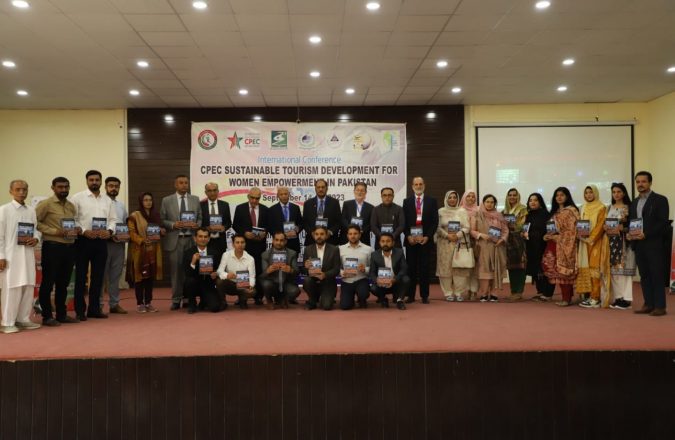
The China Study Center at Karakoram International University proudly exhibited its most recent literary masterpiece, “Silk Route Revisited,” during the conference, which was a significant event. This insightful book promises to take readers on a compelling voyage through the ancient Silk Route, reconstructed through the prism of the current dimensions.
In the middle of the intellectual interaction and conversations, I explored the fascinating territory of Gilgit-Baltistan, notably the scenic town of Hunza. Hunza’s welcoming culture and people blew me away. I enjoyed observing how hospitable and excited they were to share their culture and traditions with visitors.
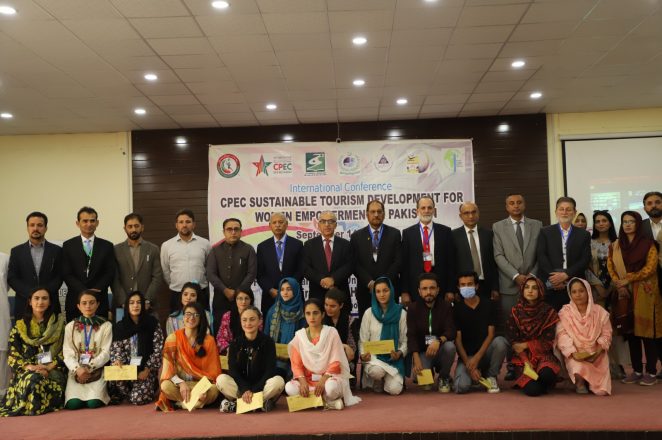
I was privileged to enjoy a traditional Hunza music and dance performance during the evening’s ceremonial dinner, which became a treasured experience. This performance was even more spectacular because it was presented by the talented faculty and professors of Karakoram International University (KIU) and other International Relations (IR) scholars.
As the music filled the air and the rhythmic beats of the drums resonated, it was clear that something stunning was about to happen. The bond between the professors and IR scholars was exceptional. Their camaraderie was palpable, created by a shared love of academia and the region’s cultural richness.
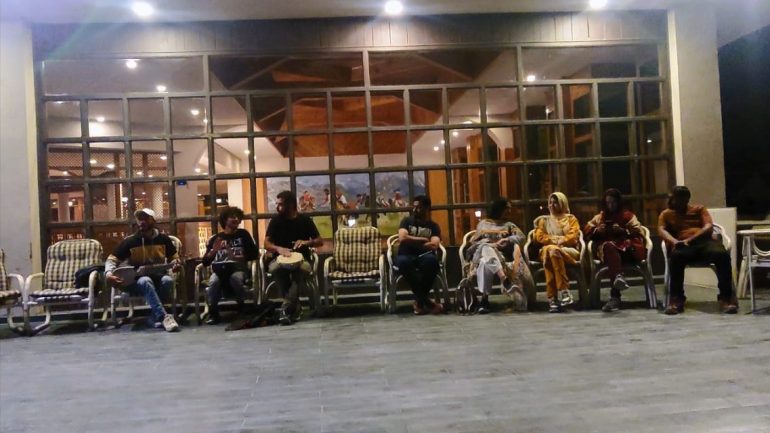
There was a sense of expectation in the air as the first notes of the classic Gilgit-Baltistan melodies started to play. The stories of the region’s history and culture were conveyed through each word of their enthusiastic and rhythmic lyrics, which were a symphony of well-coordinated grace.
The faculty members and IR scholars paid tribute to their heritage and culture as a flawless combination of tradition and modernity, creating an electric environment. It was a celebration of life, culture, and education—a monument to the IR society’s resilience and strength.
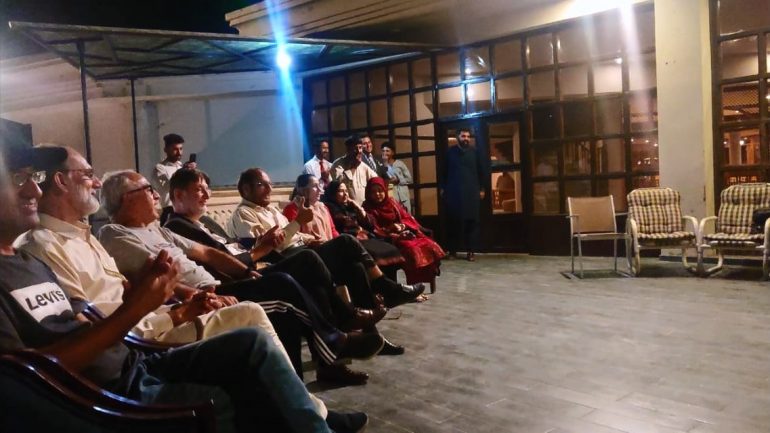
I sat captivated by this amazing success; I couldn’t help but feel a profound respect for the ability of education to unite people, encourage relationships, and honor the diversity of our cultures. It was a moment that cut across boundaries and social strata, reminding us that culture and education are the threads that bind us all together.
As I said goodbye to Hunza, I was grateful for the kind hospitality I received and appreciation for the region’s natural beauty and the promise sustainable tourism holds for advancing women’s empowerment in Pakistan. This gathering reinforced my conviction in the potential of travel to broaden my horizons and create lasting connections.
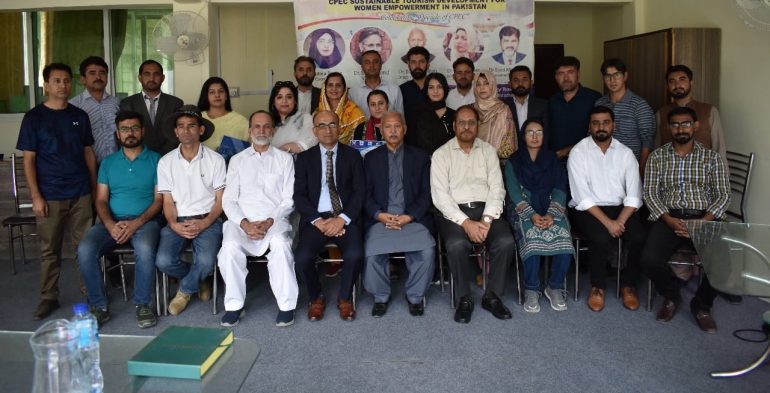
At that conference, the connections made via academics and the splendor of Gilgit-Baltistan’s culture came together to produce a memory that will always be seared in our minds. It was a poignant reminder that our academic experiences are shaped by the books we read or the lectures we attend, the people we meet, and the memories we make together.
International Relations Scholar interested in National Security strategies, with a good focus on Geo-Politics, Foreign Policy, and Public & Cultural Diplomacy.

